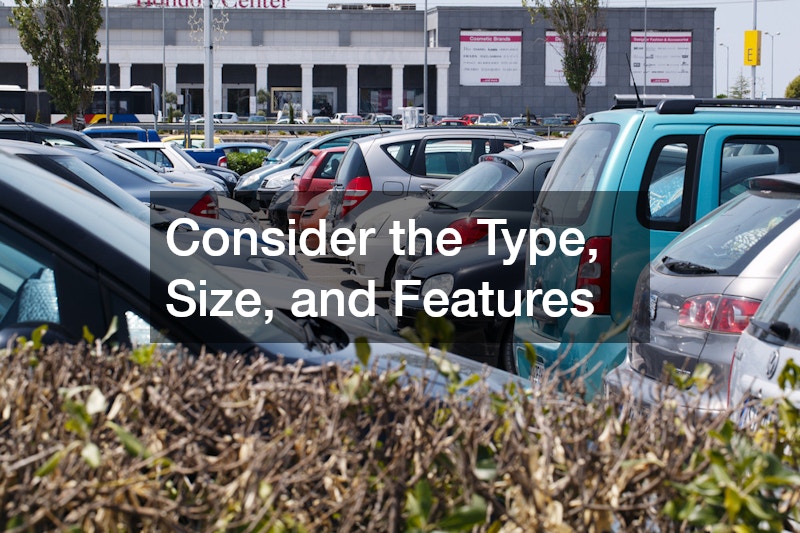Choosing the right car trailer from a trailer manufacturer is crucial for safe and efficient vehicle transport. This article will help you navigate the different types of car trailers, understand their features, and make an informed decision that best suits your needs.
What Types of Car Trailers Are Available?
Open Car Trailers
Open car trailers provide a cost-effective solution for transporting vehicles, allowing for easy loading and unloading. They are often lighter compared to enclosed trailers, making them easier to tow and maneuver, especially for those new to towing.
These trailers are typically less expensive and offer greater versatility for transporting different types of vehicles. However, they do expose vehicles to weather conditions and road debris, which should be considered depending on the value and condition of the vehicle being transported.
Open trailers are generally suitable for short-distance transportation or when weather conditions are favorable. It’s important to ensure the vehicle is securely fastened at multiple points to prevent movement during transit.
Enclosed Car Trailers
Enclosed car trailers offer protection from weather and road debris, ensuring your vehicle remains in pristine condition during transport. They are ideal for transporting luxury or classic cars that require additional care during transportation.
While more secure, these trailers are heavier and can be challenging to navigate without prior towing experience. It’s crucial to have a vehicle with adequate towing capacity to safely haul the added weight of an enclosed trailer.
Despite their higher cost, the investment in an enclosed trailer ensures peace of mind when transporting valuable vehicles. This makes them a favored choice for car enthusiasts and professionals needing guaranteed protection.
How to Determine the Right Size of Car Trailer?
Consideration of Vehicle Dimensions
Measure your vehicle’s dimensions, including length, width, and height, to select a trailer that accommodates your car’s size. It’s wise to consider possible future transport needs when determining the trailer’s dimensions, opting for a slightly larger capacity if necessary.
Choosing a trailer that’s too small can result in an unsafe load and potential damage to both the vehicle and the trailer. On the other hand, selecting a significantly larger trailer than needed can lead to maneuverability issues and unnecessary towing strain.
Precision in measurement ensures that your vehicle safely fits within the trailer, with adequate space for securing it properly. Keep in mind that allowances for tie-down and safety equipment should also be factored into your dimensions.
Weight Capacity and Legal Limits
Check the weight capacity of the trailer and ensure it complies with local legal weight limits for safe towing. Overloading a trailer can result in severe safety hazards, such as brake failure or tire blowouts.
Both the trailer and towing vehicle have specific Gross Vehicle Weight Ratings (GVWR) that must not be exceeded. Exceeding this limit not only endangers your vehicle but also poses legal repercussions with fines or sanctions.
It’s vital to account for the combined weight of the trailer and cargo, as well as any additional gear or attachments. Understanding these parameters helps maintain compliance and ensures a smoother, safer transport experience.
What are the Key Features to Look For in a Car Trailer?
Loading and Unloading Mechanisms
Evaluate trailers with ramps, winches, or hydraulic lifts for convenient loading and unloading of vehicles. These features significantly ease the process and reduce the physical strain associated with vehicle transport.
Hydraulic lifts offer superior ease of use, especially for larger or bulkier vehicles that may be difficult to maneuver. However, they can cost more relative to manual ramps, which require more effort but are more budget-friendly.
Ramps are the more traditional option, providing straightforward and reliable access to trailer beds. Proper maintenance of these mechanisms is essential to ensure their smooth operation across multiple transport tasks.
Safety and Security Features
Look for features like tie-down points, brakes, and locks to ensure the safety and security of the vehicle during transport. A reliable braking system is particularly crucial under varying road conditions to prevent sway and potential detachment.
Advanced security features such as anti-theft locks and GPS tracking systems can offer additional peace of mind when leaving the trailer unattended. Safety and security considerations not only protect the vehicle but also ensure the safety of other road users.
Moreover, ensure the trailer has proper lighting and reflective markers for visibility during low-light conditions. These safety enhancements are vital in minimizing risks during night-time or inclement weather towing.
How to Maintain Your Car Trailer for Longevity?
Regular Inspection and Maintenance
Conduct regular inspections of the trailer’s tires, brakes, and lights to maintain safety and extend its lifespan. Simple checks before each trip can catch and resolve potential issues before they escalate into costly repairs or accidents.
Routine maintenance includes lubricating moving parts and checking tire pressure, ensuring optimal performance and safety. Investment in maintenance contributes to the extended lifespan of the trailer and reduces unexpected breakdowns.
Additionally, inspecting the trailer’s structural integrity after prolonged use or harsh conditions can preempt more serious concerns. Properly maintained trailers provide reliable service and retain their resale value better over time.
Selecting the right car trailer is essential for effective and secure vehicle transportation. By considering the type, size, features, and maintenance of the trailer, you can ensure a safe and efficient transport experience tailored to your specific needs.




